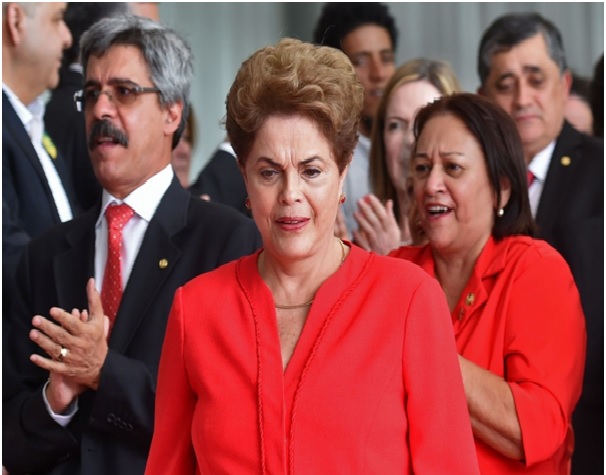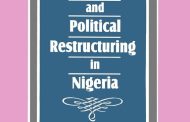By Ishaan Tharoor


Dilma Rousseff was stripped of Brazil’s presidency in a Senate impeachment vote on Wednesday. (Evaristo Sa/AFP via Getty Images)
The nations that represent Latin America’s leftist vanguard reacted with anger after Brazilian President Dilma Rousseff was stripped of her office on Wednesday. A Senate vote confirmed Rousseff’s ouster after a heated, protracted impeachment process that divided the country and led her supporters at home and abroad to decry what they deemed a parliamentary coup.
“Rousseff was impeached on arcane charges having to do with violating budget laws,” as my colleague Dom Philips explained. “But she was swept up in a tide of revulsion against Brazil’s political class as the once-flourishing economy contracted and political parties were tarred by a massive corruption scandal.”
While her supporters grew increasingly resigned to her fate, leftists governments elsewhere in the region were indignant. Bolivia, Ecuador and Venezuela withdrew their ambassadors in protest of her ouster and, in some instances, suspended ties with Brasilia.
In a statement released just moments after Rousseff’s ouster was confirmed, Venezuela declared that it had decided “to definitively withdraw its ambassador in the Federal Republic of Brazil, and to freeze political and diplomatic relations with the government that emerged from this parliamentary coup.”
Bolivian President Evo Morales denounced her removal on Twitter, while indicating that his country’s ambassador would be withdrawn.
“Through this unjust process, they aim to … expel the poor, blacks and women from power,” Morales said separately, attacking Brazil’s conservative political class. “Right-wing ex-presidents are protected by a cloak of impunity [while] leftist presidents [become victims of] judicial persecution, punishment.”
Ecuadoran President Rafael Correa said on Twitter that Rousseff’s ouster was a reminder of “the darkest hours of our America,” referring to an era of repressive right-wing dictatorships during the Cold War.
“These unfortunate events, unacceptable in the 21st century, pose a serious risk to the stability of our region and constitute a grave setback in the consolidation of democracy,” Correa said.
This rhetoric is not particularly new. In May, during an earlier phase of the proceedings against Rousseff, the Brazilian Foreign Ministry (under the control of the interim government) put out a statement rebuffing the protestations of these neighbors, saying it “emphatically rejects” others in the region “allowing themselves to opine and propagate falsehoods over internal political process in Brazil.”
Nevertheless, what happened to Rousseff has profound global echoes.
“Brazil’s crisis in some ways resembles those of other ‘developing’ countries where governance issues and economic setbacks have led to political tensions: Witness the difficulties of South Africa’s ANC or the anti-corruption campaigns waged by China’s autocratic leader,” noted an editorial in Britain’s Guardian newspaper.
And in South America, it’s yet another blow to a brand of populist, leftist politics that seemed to be in the ascendancy not long ago. Recent presidential elections in Argentina and Peru delivered victories to the center-right. Venezuela, in the grips of economic meltdown and an epic political crisis, saw a huge antigovernment rally on the streets of Caracas a day after Rousseff’s ouster.
Of course, as the Financial Times observes, leftist politics in Brazil and Venezuela “are worlds apart.” But the slow-moving drama that unfurled in Brazil is one that implicates a whole region.
Culled from The Washington Post, (Sept 2, 2016) with no editing except repositioning of graphics. Washington Post introduces Ishaan Tharoor as a writer for it on foreign affairs and coming from being a senior editor at TIME from Hong Kong and later from New York -Editor



























